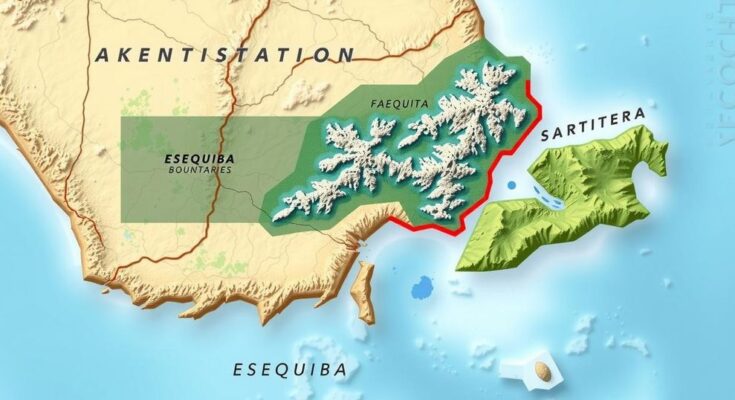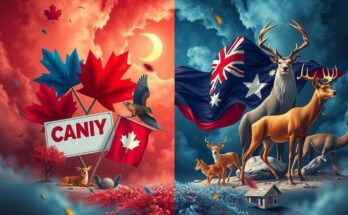Venezuelan President Nicolas Maduro accused Guyana of unlawful activities in the Esequibo region, claiming that Guyana allowed ExxonMobil to extract oil from unmarked waters. Maduro vowed to take steps against these actions and denounced them as illegal. The Caribbean Community has urged both countries to avoid escalating tensions related to the long-standing territorial dispute.
On Thursday, Venezuelan President Nicolas Maduro accused Guyana of engaging in illegal activities in the disputed Esequibo region. This area has been a longstanding point of contention between the two countries. Maduro asserted that Guyana has permitted US energy corporation ExxonMobil to extract oil from waters that lack international demarcation, describing these actions as unlawful and expressing Venezuela’s determination to take measures against them.
Maduro declared, “This is absolutely illegal,” criticizing Guyana’s operations within the contested territory. He emphasized that Venezuela would reject and condemn these actions, stating, “We will take all steps to stop the illegal activities of the Guyanese government with ExxonMobil.” The Esequibo region holds significant oil and mineral resources, which intensifies the dispute.
In a related incident, Guyanese President Irfaan Ali reported that Venezuelan naval ships had approached an ExxonMobil platform, raising alarms about escalating tensions. Venezuela swiftly countered, accusing Guyana of disseminating misleading information. Additionally, Venezuelan authorities claimed that numerous foreign drilling vessels are operating in the disputed waters, deeming these activities violations of international law.
The Caribbean Community (Caricom) has intervened by urging both nations to exercise caution to prevent further escalations. Caricom’s call emphasizes the importance of dialogue and restraint in managing the tensions arising from the territorial dispute. The historical context of the Esequibo conflict dates back to British colonial rule, with a 1899 arbitration agreement designating the Esequibo River as Guyana’s western boundary. Nonetheless, the border has remained contentious since Guyana’s independence in 1966, leading to ongoing disagreements over the resource-rich region.
In conclusion, the accusation by President Nicolas Maduro against Guyana highlights the ongoing tensions regarding the Esequibo region. The involvement of ExxonMobil in oil extraction has exacerbated the dispute, prompting Venezuela to assert its claims of illegality. The situation remains complex, with both nations urged to ensure that actions do not escalate conflicts in this historically contested area. The path to a resolution lies in continued dialogue and adherence to international agreements.
Original Source: www.aa.com.tr




